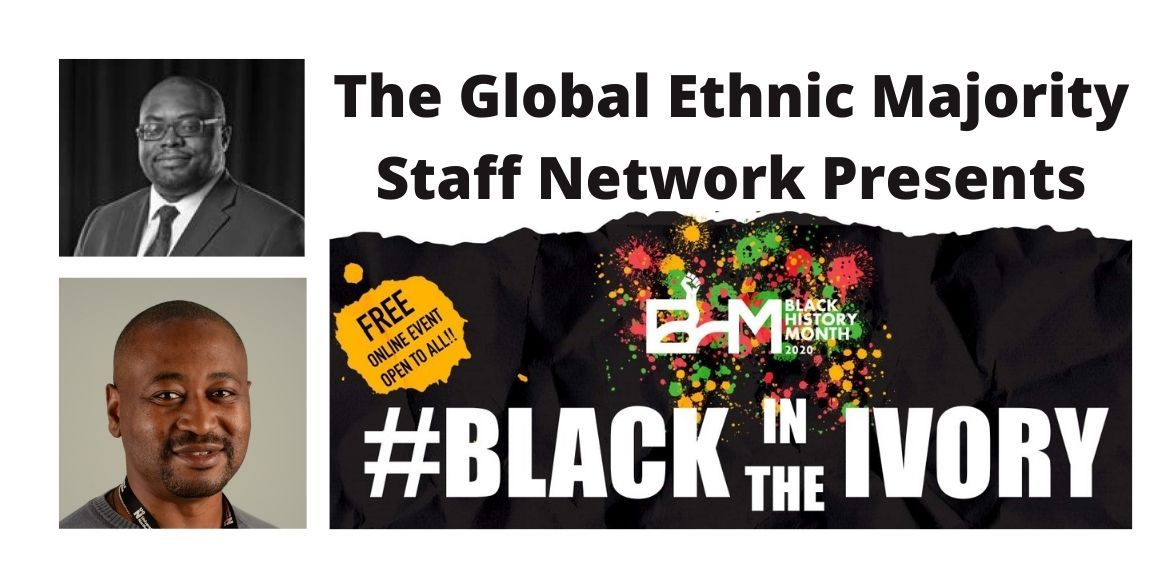UON conference explores the student attainment gap
Date 12.10.2020

Two academics from the University of Northampton will present their research, which explores the factors influencing the student attainment gap, at the University of Northampton’s #BlackintheIvory conference on 14 October.
The #BlackintheIvory conference is the main event organised by the Global Ethnic Majority (GEM) staff network in, observation of Black History Month in October.
As part of the conference, Dr Patrice Seuwou, Senior Lecturer in Digital Business and Nathan Dodzo, Senior Lecturer in Journalism and Media, will present their research project, funded by the Institution of Learning and Teaching, which explores the nuances within our University community, and importantly, suggest changes to improve the support for our BAME students to achieve their potential.
Dr Patrice Seuwou, said: “In recent years the success rates of different groups of students in Higher Education, has come under considerable scrutiny, with gender and ethnicity identified as key attributes predicting differential achievement of ‘good degrees’.
“Considerable studies have been conducted in the past attempting to identify and explain the attainment gap for BAME students. Generally, it is difficult for individual institutions to break down their data into sub-groups as this can make the dataset too small to be of any statistical significance.
“Knowing that, our project at Northampton focused on qualitative research methods to explore the academic, social and cultural aspects of the problem from the student perspective and from the staff viewpoint. Working to understand and then implement creative solutions to tackle the factors which impact on the success of our BAME students is part of our Changemaker ethos here at Northampton.
“This ethos allowed us an opportunity for some meaningful, structured, and uncomfortable conversations. It gave us an opportunity as educators to better understand the challenges faced by our BAME student communities and how those challenges impact negatively on attainment.
“We were encouraged by the honest responses from all our participants, who also highlighted the importance of such open conversations and dialogue, and the manner in which it was conducted.”
Speaking about the research findings, Nathan Dodzo, said: “What is clear from our research findings is that BAME students are not a homogenous group. While it is useful to look at commonalities, it is important to recognise that there are several layers of complexity and considerable differences amongst different BAME sub-groups. The numbers do not lie, and here we have significant racial disparities that simply cannot be ignored.
“For us to move forward as an institution, it begins with acknowledgement from all changemakers that there is a problem, then embracing the strategies for the implementation of effective solutions. We are an educational institution after all, let us begin by educating ourselves. By better understanding our past, we can better shape our present and future.”
At the #BlackintheIvory conference the duo will present their research, and discuss their next project, developing a workshop covering concepts such as decolonising the curriculum, White privilege, BAME experiences, to support academics to make meaningful changes to their practice.